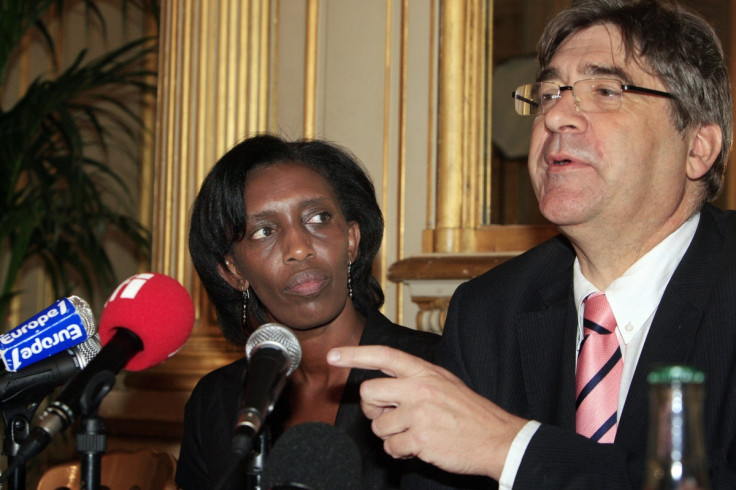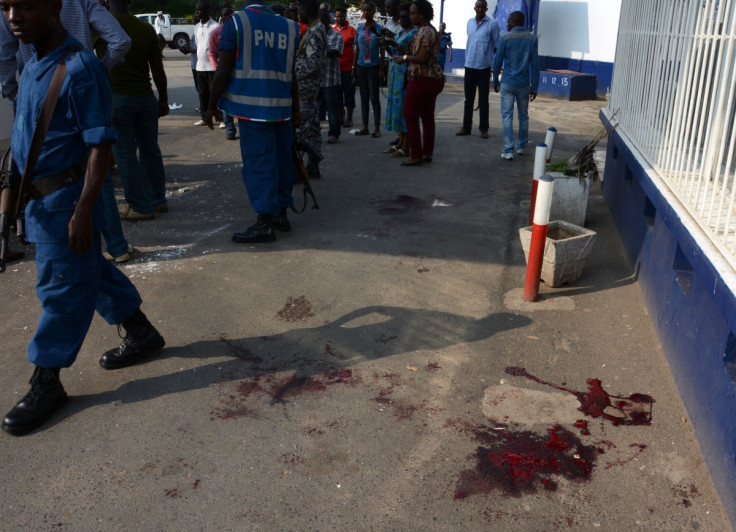Burundi: Families officially request UN and ICC investigate crimes against humanity

For the first time since Burundi plunged into a deadly political crisis in April 2015, sixty Burundian families have officially mandated a group of lawyers to bring cases in front of the High Commissioner for Human Rights and the International Criminal Court (ICC) regarding alleged crimes against humanity committed in the small African nation, IBTimes UK can reveal.
The bloody crisis that has killed up to 900 people, pits supporters of President Pierre Nkurunziza against those who say that his re-election in July 2015 for a third term violated the constitution of a nation still reeling from a civil war that occurred between 1993 and 2005, leaving 300,000 people dead. After a failed coup, the government intensified its crackdown and most of those arrested or disappeared today are young men and women accused of participating in or supporting opposition groups.
Three lawyers - Belgian Bernard Maingain, Burundian Armel Niyongere and Leon Lef Forster from France - have already written to the ICC and the High Commissioner for Human Rights at the United Nations.
Cases brought to ICC and High Commissioner for Human Rights
Duly mandated, the lawyers have requested that the families of the victims they represent are permitted to actively collaborate with the authorities, through the collection of evidence regarding the circumstances of the alleged executions and the identification the authors and accomplices of the purported murders.
"60 families have given us a mandate to collaborate with the ICC with regards to the collection of evidence of extra-judicial executions. This represents a first big step, because they are willing to be heard, and to bring forward evidence of these crimes," Maingain exclusively told IBTimes UK on 24 March, ahead of the International Conference on Burundi organised by Burundi Crime Watch in Manchester.

The lawyers have asked to meet with the Office of the Prosecutor in charge of investigations in the ICC and members the UN's Committee of Experts to examine ways and means to carry out these investigations without endangering the lives of the civil party still living in Burundi.
"This sends a message to the authorities and those responsible of violence that impunity must stop," Maingain said. "The motivation of the families is to fight against impunity and to bring one day before the Court and Tribunals people who participated in these crimes, irrespective of their current position in the Burundian state apparatus. This fight against impunity is a priority and any pressure, including pressure on the lawyers will make them turn back."
According to the ICC, crimes against humanity include acts committed as part of a widespread or systematic attack directed against any civilian population, such as murder, extermination, enforced disappearance of persons, imprisonment, torture, persecution against an identifiable group on political, racial, national, ethnic, cultural, religious or gender grounds, and sexual violence.
Belgium: Complaint for incitement to racial hatred
Meanwhile, a group of Burundians, from both Hutu and Tutsi communities who reside in Belgium, have also mandated the group of lawyers to file a complaint to the Belgian Senior Crown prosecutor for incitement to racial hatred between Tutsi and Hutus.
"We have collected evidence that circulated online and we have submitted the file to the Prosecutor with the hope that it will open a thorough investigation," the lawyer explained.
The evidence collected includes audio messages (such as Sound Cloud archives) published online. Under Belgian law, anything circulating on the internet that is susceptible of being read or heard on the Belgian territory justifies the territorial competence of the Belgian authorities.
"It means this could also lead to a criminal prosecution. Whatever the consequences, this sends a very strong signal that all this must stop," Maingain added.
The case is expected to be officially opened next week, according to the lawyer.
© Copyright IBTimes 2024. All rights reserved.






